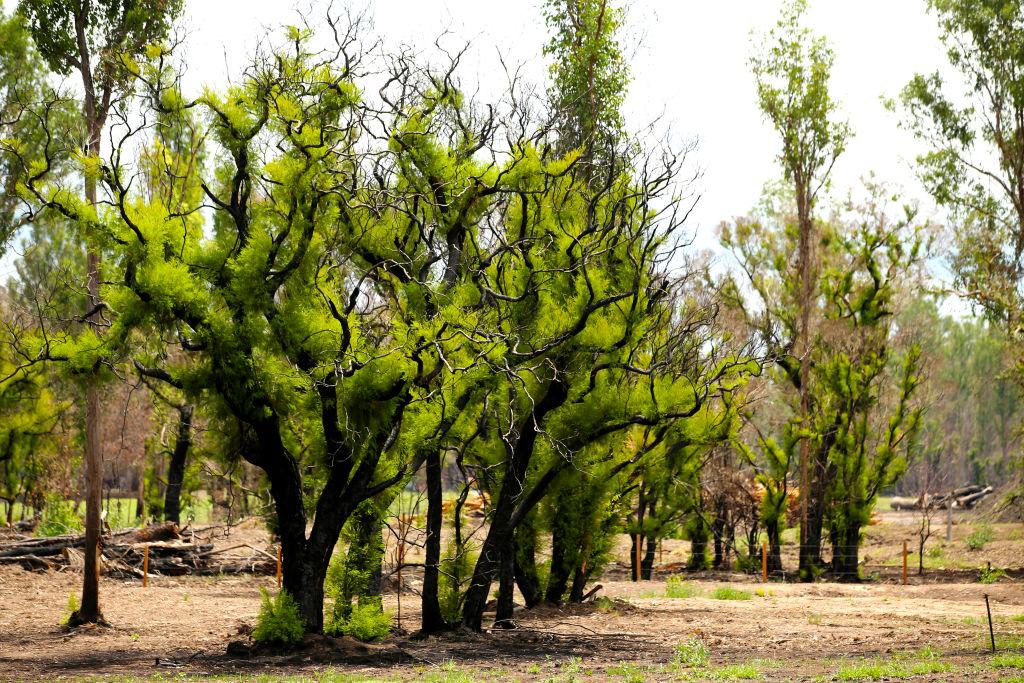
Planet A
This week, Australia and the United States reaffirmed their commitment to tackling biodiversity loss in their joint communiqué released as part of the AUSMIN consultations. The statement came on the eve of the opening of the 15th UN Biodiversity Conference in Canada, which runs until 19 December. The meeting is expected to adopt a global biodiversity framework aiming at conserving 30% of the world’s oceans and land by 2030.
Biodiversity is essential for the general health of ecosystems and natural environments, which human populations depend on to satisfy a range of basic needs such as food and fresh water. Climate change and biodiversity are also deeply interlinked; it’s increasingly clear that biodiversity loss and climate change form part of a vicious cycle. There’s a lack of research, however, that integrates ecology and climate science to provide a better understanding of the specific feedback loops that exist.
While global initiatives that aim to tackle biodiversity loss are welcome, significant harm has already occurred. Australia’s inaugural annual climate change statement, for example, alarmingly notes that 19 Australian ecosystems are already showing signs of collapse or near collapse.
Democracy watch
On Monday, thousands of Mongolians gathered in Ulaanbaatar’s central Sukhbaatar Square in freezing temperatures to demonstrate against alleged government corruption linked to coal sales to China. Protestors clashed with police when they tried to storm the parliament building. At least two were detained by security forces after they set fire to a Christmas fir tree in the square.
The protesters included college students and other young people angered by allegations that government legislators with ties to the coal industry were profiting from illegal coal sales to China. Allegations of embezzlement centre on coal from the Tavan Tolgoi region in the south Gobi Desert. More than 30 implicated officials were under investigation by Mongolia’s Independent Authority Against Corruption.
In response to the protests, the Mongolian government has promised to create a working group for dialogue. However, the frustrations from the country’s soaring inflation and ailing economy remain difficult to resolve.
Information operations
The European Commission is creating six new anti-disinformation hubs as part of the European Digital Media Observatory, extending its coverage to all EU countries and languages. The aim is to form a transnational network for academics, fact-checkers and experts to analyse disinformation while collaborating with the media, online platforms and practitioners.
The EDMO has five main activities: running a secure online platform supporting analysis and awareness-raising; providing training and outreach; supporting and coordinating independent fact-checking; supporting and coordinating academic research; and supporting public authorities in monitoring measures that limit the spread and impact of disinformation.
As the scale and sophistication of information operations increase, the role of the EDMO and other organisations becomes even more crucial. The UK government has a countering disinformation program that supports Eastern European countries in enhancing the quality of public service and independent media. The Ukraine war has brought a need for greater support for nearby countries and organisations working on countering Russian disinformation.
Follow the money
Cryptocurrency is in crisis after crypto firm FTX declared bankruptcy last month. Australian crypto firms have been particularly affected by the contagion, yet the threat to the mainstream economy remains low.
Among the casualties, Orthogonal Trading defaulted on a $10 million loan, Swyftx cut 35% of its workforce and Digital Surge suspended customer deposits and withdrawals, including for self-managed superannuation funds.
FTX’s demise has prompted requests for better global crypto regulation ahead of proposed policy changes in Australia. Next year, Australia is due to implement custodial and exchange legislation to prevent the kinds of losses currently suffered by FTX’s 30,000 Australian creditors and is conducting ‘token mapping’ to help identify how crypto should be regulated in the future, a world first. The new legislation is said to place Australia as a ‘global leader in crypto regulation’; however, some are sceptical about the government’s ability to deliver on these changes.
Terror byte
Neil Prakash, once touted as Australia’s ‘most important and the most dangerous’ member of the Islamic State terrorist group, was extradited from Turkey and arrested by the Australian Federal Police last week, six years after an arrest warrant was issued for him.
Prakash, also known as Abu Khalid al-Cambodi, has been charged with six separate offences relating to his active participation in IS terror attacks in Syria, his part in a failed terror attack in Melbourne and his alleged misuse of social media to recruit Australians to join IS. Should Prakash be convicted, which seems almost inevitable if he continues to refuse legal counsel, the rapper-turned-jihadist is expected to be sentenced to life in prison.
Prakash was initially arrested in Turkey in 2016, but was moved to a Turkish immigration detention facility in 2021, following the conclusion of his sentence. Conscious of the continued threat posed to Australian national security by Prakash, the AFP pursued his extradition ‘relentlessly’, securing a landmark precedent for Turkish–Australian counterterrorism cooperation.